
or
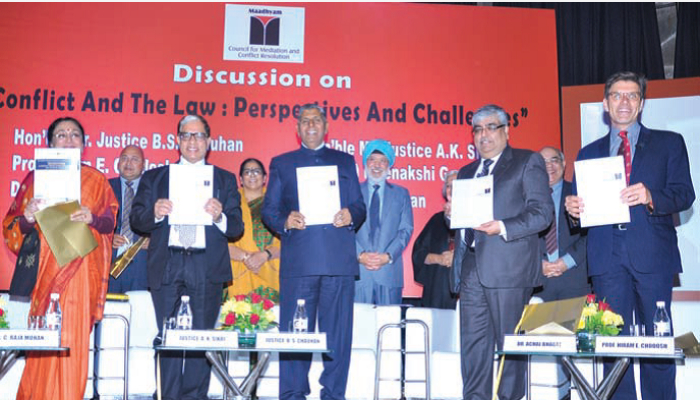
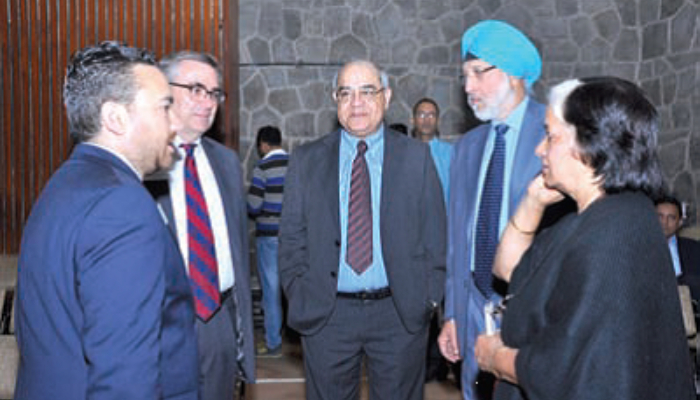
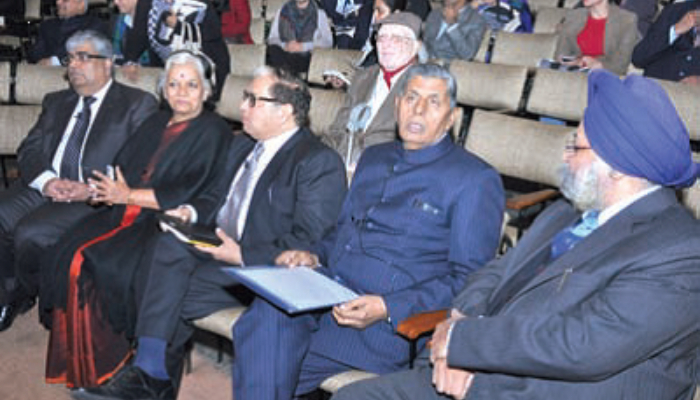
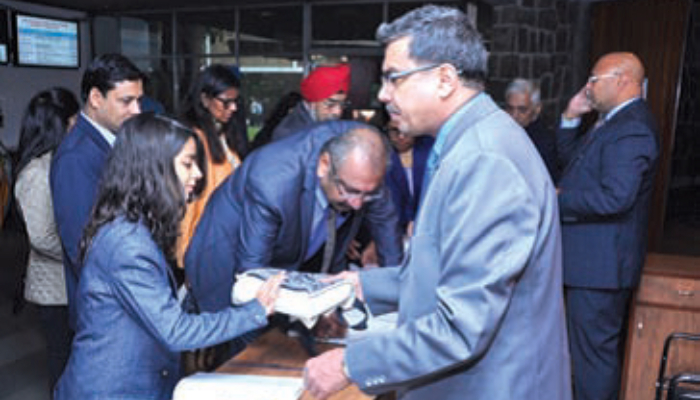
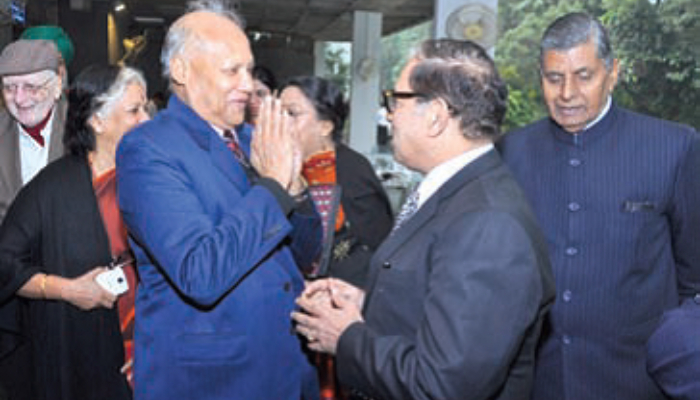
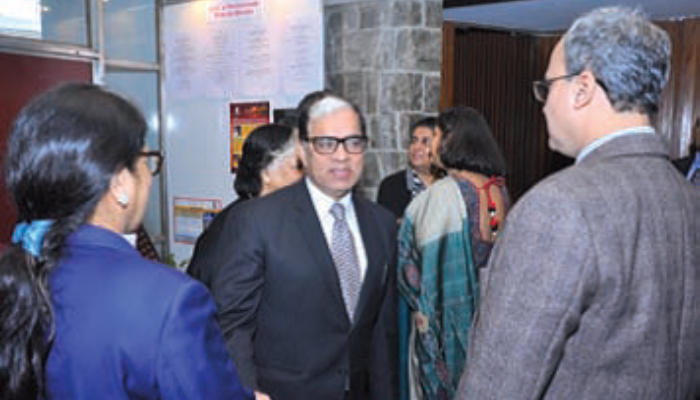
Maadhyam,’ (which literally means ‘medium,’ ‘channel,’ ‘vehicle,’ ‘instrument,’) Council for Mediation and Conflict Resolution, is a society created by a group of forwardlooking, progressive lawyers, jurists and professionals from other fields determined to enlarge the horizon of conflict resolution beyond adversarial court-boxed procedures, through creative, participative analysis and collaborative processes. Its vision encompasses creating awareness and providing academic impetus and intervention as well, in popularizing alternative ways and methods to the hitherto existing modes and means of dispute and/or conflict resolution.
The discussion was on an interesting and very important topic of great contemporary relevance – “Conflict and the Law: Perspectives and Challenges,” and was held on January 7, at India International Centre, New Delhi.
The discussion was crisp, candid and highly subject specific. The panelists were highly eminent people, well known in their respective fields. After the welcome address, the discussion began with Prof. Hiram E. Chodosh, President, Claremont McKenne College, USA, highlighting the importance of understanding the nature and negative consequences of conflict, relationship between conflict and law and identifying the real nature of conflict – whether it is conflict of laws, conflict about the laws or conflict within the laws.
When the discussion on conflict slipped into a global colour and character. Dr. C. Raja Mohan, who is an expert in international relations and presently director of Carnegie India, said that so as to reduce the political tension of India both internal and external, the country must commit itself to non-violence, balance power and principles and move its position from rule objector to rule maker.
Dr. Meenakshi Gopinath, the celebrated former principal of Lady Shriram College, New Delhi, and currently Director WISCOMP (a pioneer in initiating the discourse on women, peace, and security in South Asia), underscored the need to understand and remedy violation of human rights in situations of conflicts of all nature and levels. She also mentioned how India can contribute to the comity of nations as a soft power.
Dr. Achal Bhagat, a renowned senior consultant psychiatrist and psychotherapist in Delhi, explained the concept of trust and conflict and its psychological implications and pragmatic resolutions. He dealt with the psychology of conflict in a person from childhood to adulthood and its social relevance in our day to day life. He stressed the need to understand the other side in each conflict, as that would pave way for a better understanding of the problem as a whole, from all angles.
On Uniform Civil Code, Hon’ble Mr. Justice B.S. Chauhan, a former judge of the Supreme Court and currently heading the Law Commission of India, said that Article 44 (Uniform civil code for the citizens – the State shall endeavor to secure for the citizens a uniform civil code throughout the territory of India) should not be done in one attempt, but step by step and that the code, once brought into being, will not only be beneficial to the minority, but to all. He emphasized the need to implement law to resolve conflicts and cited the example of child marriage being done despite its legal prohibition. In the North East, one can have as many as eighty seven wives! If we follow a uniform law, this situation will not continue.
Hon’ble Mr. Justice A.K. Sikri, Judge, Supreme Court of India, in his scholarly style stated that through adjudication the results do not always lead to perfect justice. Mere application of law without considering the situational needs and circumstantial factors would not result in rendering justice. He highlighted that the judiciary is making innovative approaches to confront such situations. He has also stressed that parties should constantly endeavor to resolve the issues and not leave it to lawyers and court. Quoting the Gita, he said it is the understanding that matters.
At the end, Justice Chauhan remarked that conflict resolution has no limits and Dr. Gopinath stressed the need to shed ego, increase listening and understanding the other side to resolve the conflict effectively
Mr. A.S. Chandhiok, President of Maadhyam, in his concluding remarks highlighted the objects of Maadhyam. He said conflicts of various kinds are on the increase, from primary school levels to international levels, with varying gravity and alarm. When desire for material gains and hunger for power increase, conflicts are bound to take shape in various forms in all walks of life. Maadhyam with its presence now registered, will attempt to do conflict resolution through non-adversarial alternatives and popularize it from grass root level.
‘Maadhyam’ is a special entrant into the arena of conflict resolution, with a view to providing academic impetus and intervention in creating awareness that conflicts could be creatively analyzed and resolved peacefully, through collaborative processes, avoiding adversarial methods and means. ‘Maadhyam,’ is a society that aims to provide a forum for lawyers, mediators, conciliators, and experts from all relevant fields to work together for the development and advancement of conflict resolution laws and processes, and to provide proper setting for participation, exchange of ideas, dissemination of information, debate, research, etc., for the promotion, development and growth of conflict resolution and its practice in India and to co-operate with similar institutions in India and different parts of the world and establishing centers of excellence in the development of law and conflict resolution.
The LW Bureau is a seasoned mix of legal correspondents, authors and analysts who bring together a very well researched set of articles for your mighty readership. These articles are not necessarily the views of the Bureau itself but prove to be thought provoking and lead to discussions amongst all of us. Have an interesting read through.

Lex Witness Bureau

Lex Witness Bureau

For over 10 years, since its inception in 2009 as a monthly, Lex Witness has become India’s most credible platform for the legal luminaries to opine, comment and share their views. more...
Connect Us:


The Grand Masters - A Corporate Counsel Legal Best Practices Summit Series
www.grandmasters.in | 8 Years & Counting
The Real Estate & Construction Legal Summit
www.rcls.in | 8 Years & Counting
The Information Technology Legal Summit
www.itlegalsummit.com | 8 Years & Counting
The Banking & Finance Legal Summit
www.bfls.in | 8 Years & Counting
The Media, Advertising and Entertainment Legal Summit
www.maels.in | 8 Years & Counting
The Pharma Legal & Compliance Summit
www.plcs.co.in | 8 Years & Counting
We at Lex Witness strategically assist firms in reaching out to the relevant audience sets through various knowledge sharing initiatives. Here are some more info decks for you to know us better.
Copyright © 2020 Lex Witness - India's 1st Magazine on Legal & Corporate Affairs Rights of Admission Reserved